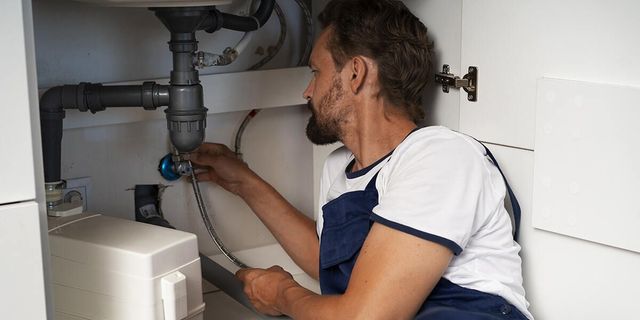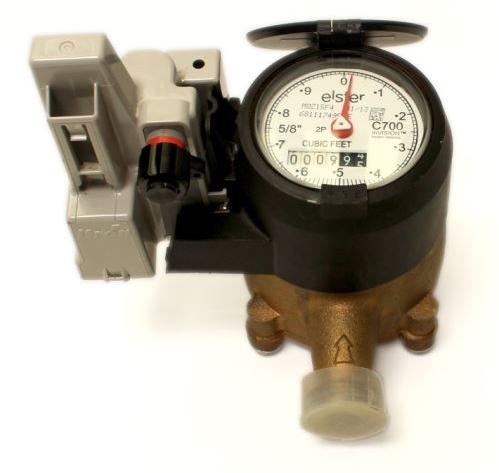Clear Strategies for Resolving Low Water Pressure in Your Home
Clear Strategies for Resolving Low Water Pressure in Your Home
Blog Article
The author is making a few great points about 4 Ways to Troubleshoot Low Water Pressure in general in this great article following next.

Low tide pressure in your house can be a discouraging issue, affecting whatever from bathing to washing recipes. If you're experiencing weak water flow, there are numerous possible reasons and solutions to check out. In this overview, we'll discuss typical factors for low water pressure and sensible steps to deal with the problem properly.
Intro to Low Tide Stress
Low water pressure happens when the flow of water from your taps, showers, and various other components is weaker than common. This can make everyday tasks more challenging and less efficient. Understanding the root causes of low tide stress is vital to locating the right remedy.
Typical Reasons For Low Water Stress
Pipe Obstructions
Gradually, pipes can come to be clogged with mineral deposits, sediment, or debris, restricting the circulation of water. This is a typical problem in older homes with galvanized steel pipes.
Deterioration
Rust within pipelines can cause leaks and lowered water pressure. Corrosion accumulation can tighten water flow, specifically in aging plumbing systems.
Faulty Pressure Regulatory Authorities
Pressure regulatory authorities are accountable for keeping consistent water pressure in your house. If they malfunction, it can result in low tide pressure or uneven flow throughout your house.
Local Supply Of Water Issues
Occasionally, the issue lies outside your home. Community supply of water problems, such as main line leakages or upkeep job, can momentarily reduce water pressure in your area.
Exactly How to Identify Low Water Pressure
Checking Faucets and Fixtures
Beginning by testing the water stress at various taps and fixtures throughout your home. If the issue is isolated to specific locations, it might indicate localized troubles.
Evaluating Pipelines
Examine visible pipelines for signs of leakages, rust, or blockages. Pay attention to any uncommon noises, such as knocking or rattling pipes, which can suggest concerns within the plumbing system.
Consulting with a Plumber
If you're not able to determine the root cause of low water stress, consider working with a professional plumber to carry out a comprehensive examination. They can recognize underlying concerns and suggest proper services.
Do It Yourself Solutions to Repair Low Tide Pressure
Cleaning Aerators and Showerheads
Natural resources can gather in aerators and showerheads, decreasing water flow. Eliminate and clean up these elements regularly to boost water stress.
Flushing Hot Water Heater
Debris accumulation in the water heater can restrict flow and lower effectiveness. Flushing the tank occasionally aids eliminate sediment and keep ideal performance.
Examining Stress Regulator
Ensure that the stress regulator is operating properly. Adjusting or changing the regulator can help restore appropriate water stress throughout your home.
Clearing Up Clogs in Water Lines
For minor clogs, attempt making use of a plumbing serpent or chemical drain cleaner to clear blockages in pipes. Be cautious when utilizing chemicals and follow security standards.
When to Call an Expert Plumber
If do it yourself initiatives fall short to deal with the problem or if you suspect substantial plumbing issues, it's finest to seek assistance from a qualified plumber. They have the experience and devices to attend to intricate problems safely and properly.
Safety Nets to Preserve Water Stress
Regular Maintenance
Arrange routine maintenance for your plumbing system to prevent issues such as rust, leakages, and clogs. Attending to minor troubles early can help avoid even more significant repair services later.
Mounting a Pressure Booster
Consider mounting a stress booster pump to improve water pressure in areas with consistently low flow. This can be especially helpful for multi-story homes or homes with high-demand components.
Surveillance Water Use
Be mindful of water use routines and stay clear of overtaxing the plumbing system. Simple adjustments, such as incredible showers and washing tons, can aid maintain appropriate water pressure.
Conclusion
Taking care of low tide stress can be irritating, but determining the underlying causes and implementing proper services can bring back optimal circulation throughout your home. Whether it's cleaning up aerators, inspecting pipelines, or talking to a plumber, taking proactive steps can ensure a steady supply of water for your day-to-day demands.
How to Fix Low Water Pressure In Your Home
Municipal Water Supply Issues
Scheduled maintenance, high demand, and water main breaks are all potential causes for low water pressure within a city or county’s water lines. While there’s not much you can do to personally fix a problem with your city or county’s water supply system, you can play a big role in documenting the issue and alerting those who can.
How to fix it:
Ask your neighbors if they are experiencing any issues with low water pressure. If multiple homes are affected, it’s likely related to the city’s water line.
Contact the local Water Authority to see if there is any maintenance taking place that might be affecting your supply. Also let them know of your specific issues. If other homeowners report the same issues, they’ll know that there could be a larger issue to look into.
Faulty Fixtures
A damaged or clogged shower head, faucet or appliance is the first thing we’d suggest checking, especially if low water pressure appears to be isolated to a specific area of your home.
How to fix it:
First, turn off the main water supply to your home.
Check the affected appliances for build-up or debris. In the case of a faucet, you can simply unscrew the aerator at the tip of the faucet. Showerheads should be fully detached from the water pipe.
While the appliances are detached, you may want to check the water supply to determine if the fixtures were in fact the issue.
To clean, soak the showerhead or aerator in vinegar and brush off any visible debris.
Reattach the fixtures and check the water pressure again. If it is still low, there is likely a deeper issue at hand, which can be determined by a professional plumber.
Pipe Obstructions
Mineral deposits, rust or other debris within water pipes can lead to blockages or corrosion over time.
How to fix it:
When you think of a clog, you probably think of a drain clog. While there are many DIY solutions to clearing a drain, clogs in a water pipe will almost always require the help of a professional plumber. A plumber will be able to locate the affected pipe and clean out any debris or mineral deposit buildup. In severe cases, the pipe may need to be replaced. Your plumber might also recommend a water softening system to remove the minerals from your home’s water supply that can contribute to pipe blockages over time.
Plumbing Leak
Undetected water line leaks can divert water away from your residential pipes, reducing the water pressure in your fixtures.
How to fix it:
Check your water meter by turning off all water sources and monitoring the meter for any movement, which could be a clear indicator of a potential leak.
Check all visible pipes for signs of leaking, including water stains, active dripping or damp spots around the pipe.
Inspect fixtures, including faucets and showerheads, for any drips.
Test the pressure but recording the pressure with the main water valve shut off. Leave off for a few hours and test again. A significant drop in pressure is a clear sign of a leak.
https://kiddcoplumbing.com/plumbing-blog/how-to-fix-low-water-pressure/

How to Fix Low Water Pressure In Your Home
Municipal Water Supply Issues
Scheduled maintenance, high demand, and water main breaks are all potential causes for low water pressure within a city or county’s water lines. While there’s not much you can do to personally fix a problem with your city or county’s water supply system, you can play a big role in documenting the issue and alerting those who can.
How to fix it:
Faulty Fixtures
A damaged or clogged shower head, faucet or appliance is the first thing we’d suggest checking, especially if low water pressure appears to be isolated to a specific area of your home.
How to fix it:
Pipe Obstructions
Mineral deposits, rust or other debris within water pipes can lead to blockages or corrosion over time.
How to fix it:
When you think of a clog, you probably think of a drain clog. While there are many DIY solutions to clearing a drain, clogs in a water pipe will almost always require the help of a professional plumber. A plumber will be able to locate the affected pipe and clean out any debris or mineral deposit buildup. In severe cases, the pipe may need to be replaced. Your plumber might also recommend a water softening system to remove the minerals from your home’s water supply that can contribute to pipe blockages over time.
Plumbing Leak
Undetected water line leaks can divert water away from your residential pipes, reducing the water pressure in your fixtures.
How to fix it:
https://kiddcoplumbing.com/plumbing-blog/how-to-fix-low-water-pressure/
As a keen reader on 9 Reasons for Low Water Pressure in Your House, I thought sharing that excerpt was a great idea. Are you aware of somebody else who is interested by the niche? Please feel free to promote it. I treasure your readership.
Click Here To Read More Report this page